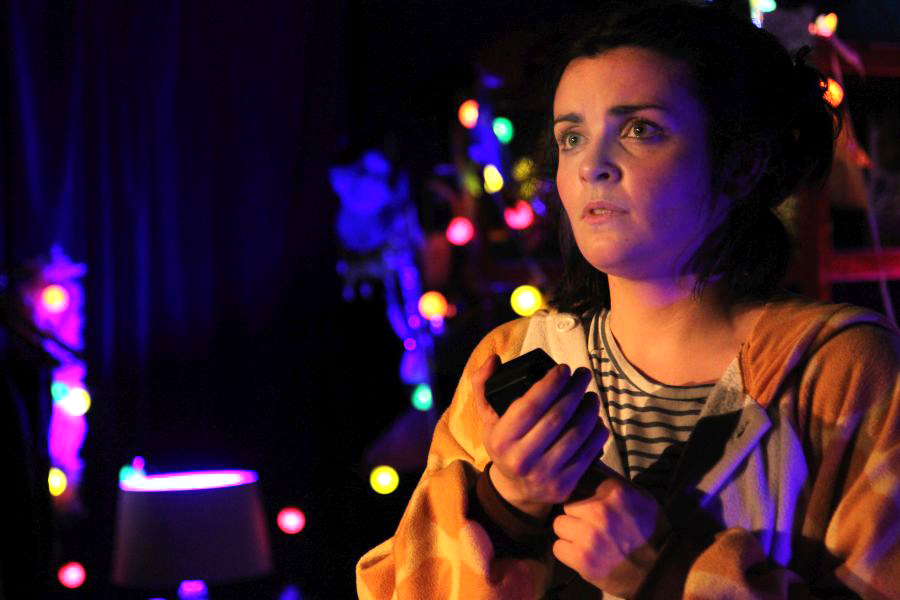
Cockroaches have been around for millennia and experts tell us that in any post-apocalyptic environment they are the species most likely to survive and thrive. In William Proudler’s dystopian future world, which has been frazzled by natural events, the remaining humans fortunate enough to survive (the cockroaches) communication is by necessity via radio as the harsh sun-scorched outside world is hostile to all but the briefest foray. This off-the –shelf approach of taking a situation which is inherently dramatic and hanging a bespoke theme from the girders is one which needs to be handled with care lest the audience take more account of the frame than the thing it supports. In this case it is a descant on the human need to communicate and the problems and frustrations that arise when this is not done face-to-face.
Unfortunately all the good intentions and hard work will be as nought if a simple thing like the quality of the sound is not up to scratch. Sadly, most of what came over the on-stage radio was indecipherable due to poor technology. Consequently Alexander George – who as Taylor found himself by happy circumstance in a costume shop – not only had to test his newly minted acting skills opposite a disembodied voice from the two-way radio, but pull off the feat with the audience largely in the dark as to what was being broadcast. What was lost as a result was the sense of desperate struggle to communicate since the audience were privy to only one half of the relationship.
As the company evolve the text in the light of performance they will no doubt take more account of the necessity to highlight the reality of the voice as an immediate presence for Taylor. Finding the courage to be still and just listen will increase the sense of the importance of the voice to the character, and as they will surely find, it is possible to listen with intensity.
A nice and innovative touch is in the company’s decision to make the parts gender neutral such that Taylor and the Voice (Grace Brightwell) alternate the roles. When Ms. Brightwell emerged for her curtain call I couldn’t help thinking an opportunity had been missed by not having her on stage. Her (unobserved) presence could only have heightened the sense of unconsummated need. Nonetheless this is an interesting theme from a new company and the metaphor will not be lost on a generation used to living and socialising in an online world.
The Wardrobe was set up in part to champion such innovative work and should be applauded for finding an audience for new voices that can but improve and flourish by the experience. ★★☆☆☆ Graham Wyles 31st August 2016

